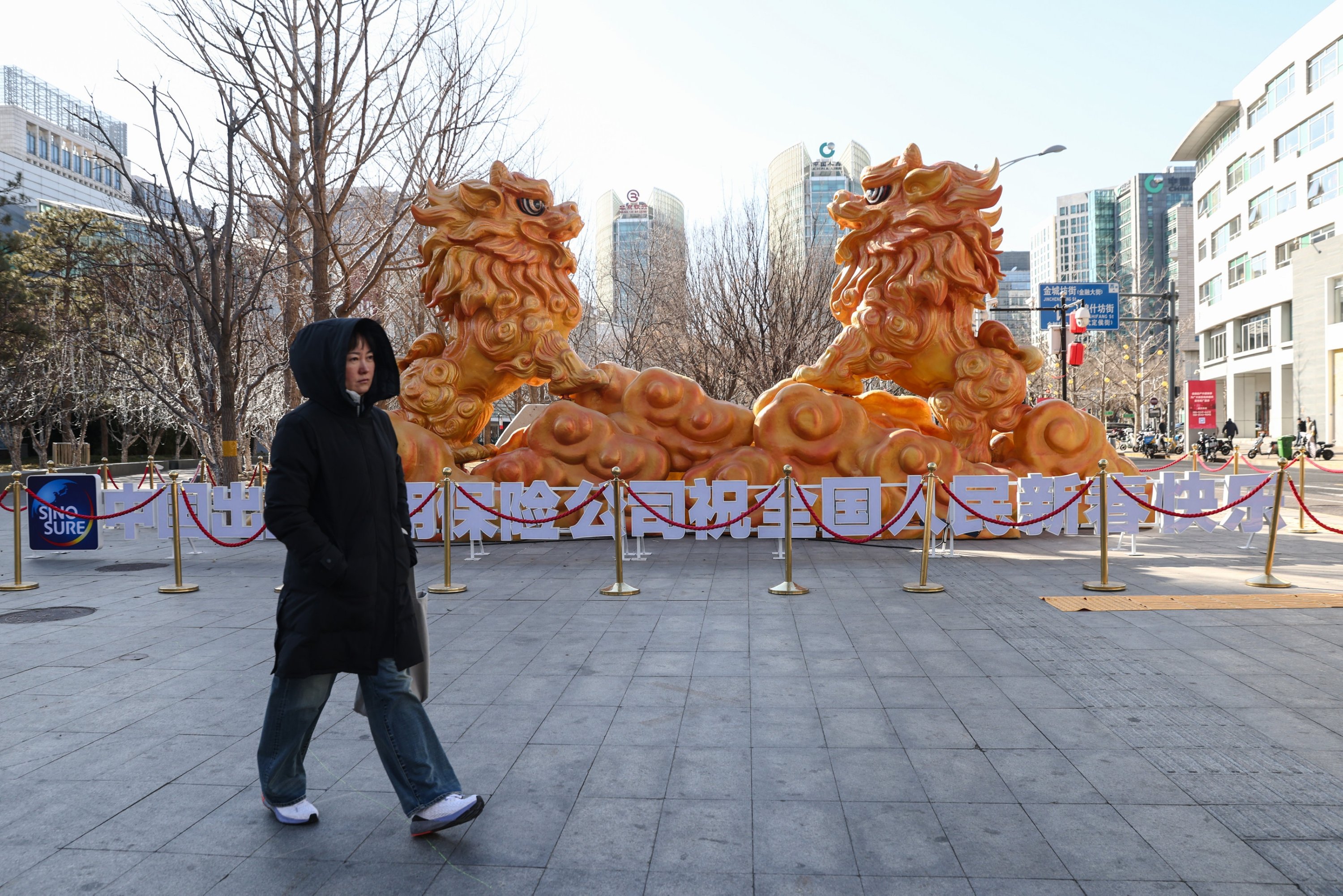© Turkuvaz Haberleşme ve Yayıncılık 2026
China set an ambitious growth target of "around 5%" for 2025 on Wednesday, pledging to make domestic demand its main economic driver despite an escalating trade war with the United States that could hit Beijing's exports.
The target, announced at the opening session of the annual meeting of China's legislature, is the same as the last two years but will likely be more difficult to achieve because of higher U.S. tariffs on Chinese products and other economic headwinds. The use of the modifier "around" gives the government some wiggle room if growth falls short of the target.
The level signals the government's intention to try to stabilize growth in challenging economic times but hold back on more dramatic action that some economists say is needed to supercharge it.
Beijing also announced a rare hike in fiscal funding, allowing its budget deficit to reach 4% of gross domestic product (GDP) this year as it battles stuttering employment for young people, stubbornly low consumer demand and a persistent property sector debt crisis.
The headline growth figure announced by Premier Li Qiang at an annual Communist Party conclave was broadly in line with an Agence France-Presse (AFP) survey of analysts – although experts say it is ambitious considering the scale of China's economic challenges.
The International Monetary Fund (IMF) has projected China's economy will grow 4.6% this year, down from 5% in 2024, according to Chinese government statistics.
Some 12 million new jobs will be created in Chinese cities under the announced plans as Beijing pushes for 2% inflation this year.
A government work report vowed to make domestic demand the "main engine and anchor" of growth, adding that Beijing should "move faster to address inadequate domestic demand, particularly insufficient consumption."
And in a rare move, Li said China would hike its fiscal deficit by one percentage point, which analysts have said will give Beijing more latitude to tackle its economic slowdown.
Economists expressed doubts over whether the policies will do enough, noting that the government reduced its inflation target to 2% from 3% last year, suggesting leaders have accepted that the economy is still mired in deflation, or a cycle of weakening prices.
Beijing's growth target would be "tough but possible," said Dylan Loh, an assistant professor at Singapore's Nanyang Technological University.
He said low consumption was a "confidence issue," adding that "if people are, in their own calculations, worried about spending – especially on big-ticket items – it is far harder to address."
Another analyst said Beijing's policies were not yet "big enough to really like significantly drive up the consumer sentiment."


"We need to see a very broad-based recovery of employment, income as well as the property market before we can really see a change in consumption patterns and retail sales trend," Yue Su, principal economist at The Economist Intelligence Unit, told AFP.
The degree of support is "more modest than it may appear," Julian Evans-Pritchard of Capital Economics said in a report. "We remain skeptical that it will be sufficient to prevent growth from slowing this year, especially given the headwinds on the external front and the lack of a more pronounced shift in government spending toward support for consumption."
Major Asian markets traded up on Wednesday, reversing their losses a day after U.S. President Donald Trump imposed more blanket tariffs on Chinese imports following a similar move last month.
U.S. tariffs are expected to hit hundreds of billions of dollars in total trade between the world's two largest economies. They appear to be an extra concern as across-the-board 20% levies imposed on Chinese products by Trump pose the latest threat to an economy already weighed down by a prolonged real estate slump and sluggish consumer spending.
The tariffs could crimp sales to one of China's major export markets, making the need to boost domestic demand more urgent.
"Internationally, changes unseen in a century are unfolding across the world at a faster pace," the government work report said.
"Unilateralism and protectionism are on the rise," it warned. "Domestically, the foundation for China's sustained economic recovery and growth is not strong enough," the report said.
Chinese exports reached record levels last year.
Yet, sentiments were clouded by a broadening trade war under Trump as thousands of delegates congregated in Beijing's opulent Great Hall of the People for the opening session of the National People's Congress, the second of China's "Two Sessions" political meetings this week.
Beijing announced its own measures on Tuesday in retaliation for Washington's latest tariff hike and vowed it would fight a trade war to the "bitter end."
The moves will see China impose levies of up to 15% on a range of U.S. agricultural products including soybeans, pork and wheat starting early next week.
Beijing's countermeasures represent a "relatively muted response" in comparison to Trump's all-encompassing tariffs, wrote Lynn Song, chief economist for Greater China at ING.
"The retaliation could have been a lot stronger, and with every further escalation the risks are also rising for a stronger response," he said.
Analysts say authorities could announce further plans to boost the economy this week, adding to a string of aggressive support measures announced late last year.
China also disclosed on Wednesday a 7.2% rise in defense spending in 2025, as Beijing rapidly modernizes its armed forces in the face of regional tensions and strategic competition with the United States.
However, online comments bemoaned the spending rise as "too little."
Another wrote: "We must strengthen ourselves to achieve world peace."
Geopolitical tensions between Beijing and Washington are set to intensify this year, analysts say.
The status of self-governed Taiwan – claimed by China as part of its sovereign territory – is chief among the sources of friction.
The defense spending will finance Beijing's frequent dispatches of military aircraft around Taiwan, intended to put pressure on authorities in the island.
It also came after Trump proposed a coordinated halving of the military budgets of the United States, Russia and China.
China has not agreed to such a move, with a foreign ministry spokesperson suggesting last month that any reductions in military expenditure should be conducted by Washington first.
At the same time, Chinese leader Xi Jinping wants to wean the economy off its long-running dependence on the highly indebted real estate market.
He is directing economic resources into developing a more innovative, high-tech economy – and with growing restrictions on U.S. technology exports to China, one that isn't beholden to other countries for the most powerful semiconductors and other electronic components.
